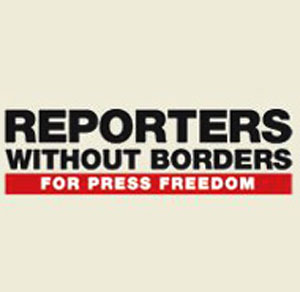’Reporters Without Borders’ is worried about the government’s plans to tighten control of the Internet
Reporters Without Borders is worried about the government’s plans to tighten control of the Internet in a country where free expression is already restricted. President Alexander Lukashenko acknowledged on 30 December that his government is putting the final touches to a bill to this effect. The draft decree was leaked to the media on December 14, 2009. The discussions around it remain secret.
“We must emphasize our concern about this bill, which threatens online free speech and everyone’s right to express their views anonymously without fear of government repression,” Reporters Without Borders said. “After placing most of the traditional media under its control, the regime is pursuing an offensive against new media.”
The press freedom organisation added: “The president’s attempts to be reassuring cannot hide the repressive nature of this bill, which is liable to make netizens censor themselves. It should be abandoned so that Belarus is not added to the list of countries such as North Korea, China and Iran that Reporters Without Borders has identified as Enemies of the Internet.”
The bill would require all online publications to be registered and everyone going online to be identified, both in Internet cafés and at home. Internet café clients would have to show an ID document in order to go online, while Internet Service Providers (ISPs) would have to keep a record of this information and report it to the police, courts and the special agencies that monitor all news content published in Belarus.
Each website would have to register under a procedure to be defined by the cabinet and approved by the presidential office’s Centre for Operations and Analysis, which would be in charge of monitoring site content. If the site has information about Belarus, it would have to be registered under a Belarusian domain name (with the .by suffix).
Finally, ISPs would be forced to block websites deemed by government agencies to be “extremist.” This would be done without referring to any court.
President Lukashenko said on 30 December that “the government will not prevent anyone from doing anything and will ban nothing” but this cannot be reconciled with earlier statements that Internet policy would be based on the Chinese model. In practice, criticism of the regime will be targeted under a policy of “the better you monitor, the better you can pursue and repress” and prosecuting defamation will be used as a cover for the repression.
In a country where government media hold sway and independent media struggle to survive, the Internet has until now been an area of dynamic free expression with a developed blogosphere that has around 3 million participants. The August 2008 press law requiring media to be registered did not apply to the Internet. The proposed new bill would address this omission and what the government calls online “anarchy.”
In its monitoring of online freedom, Reporters Without Borders has until now classified Belarus as a country “under surveillance” because it has only one ISP (Beltelekom), because access to opposition websites is blocked during major political events and because Internet café owners are required under a February 2007 decree to alert the police about customers who visit “sensitive” sites and keep a record of all the sites visited during the previous 12 months on each computer and make it available to the police if requested.
Journalists writing for the Charter 97 opposition news website (charter97.org) received threats last July after the site posted an article about a racism case.


















